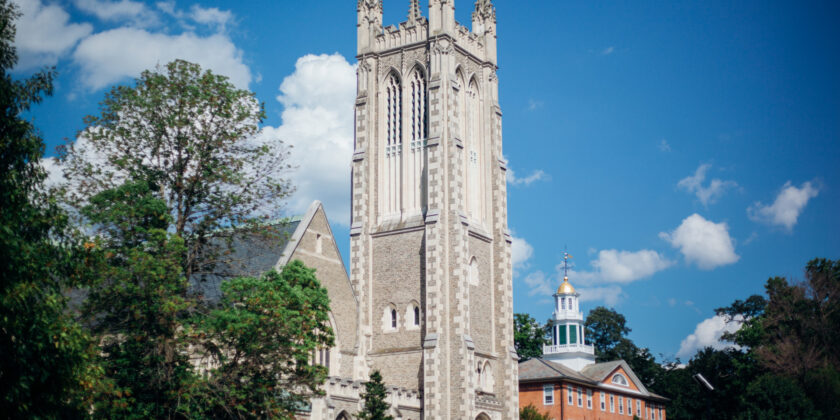Resume Magic
Yale podcast/blog: https://admissio
Michigan’s application instructions: http
Princeton’s helpful tips: https://admissio

Yale podcast/blog: https://admissio
Michigan’s application instructions: http
Princeton’s helpful tips: https://admissio

Our essay experts know best. Check out these 10 tips from Emma that will help you write the most effective personal statement.
Interested in completing your college essays this summer? Summer is the best time to tackle this important essay, so start coming up with a plan now!
Of course, your essay might have one of these messages at its heart. Maybe you did learn more from the kid you tutored than they learned from you. Maybe you did find the “silver lining” in a terrible situation. Both of these could make for great essays. But you want to verbalize that realization in your own unique and surprising way.
*Stay in the know! Subscribe*
Writer’s block is no joke! It happens to the best of us, so don’t get too frustrated if some days you just can’t get in the groove with your writing. When it strikes, try using these ideas to help jumpstart the process:
If you aren’t getting anything down in 20 concentrated minutes, it might be time to skip to 4 and 5.
Ultimately, the only way to get over writer’s block is… to write! You can do this!
*Stay in the know! Subscribe*

Often, the subject that makes for the best essay is the one you least want to talk about. So stay open as you begin the brainstorming process, even to your most sensitive relationships and memories, and notice if there’s a story you’re afraid to tell. Maybe that is your best topic. Most importantly, don’t hold back or self-censor: don’t be afraid to show your messiness and flaws, and know that no story from your life is too small or too silly to include (as long as it’s not from when you were a very small child!).
It takes courage to be vulnerable and imperfect, to admit to your mistakes and regrets. A tip? Be courageous as you brainstorm.
The following questions are some that we use in our 1:1 work, and that you might find helpful to answer as your brainstorm:
Try to identify 6-8 (or more!) of such turning point moments and write three or more sentences about each. Turning points tend to suggest scenes with dramatic potential in addition to being moments of change and growth, and nearly all the essays our students write revolve around them. Keep in mind that turning points can be minor, like an argument with a friend about who will take charge of an extracurricular project.
Think fast:
When we work with students one-on-one, we review the brainstorming document, noting the narratives, ideas, themes, and details that interest us the most. It can be easier for us, as outside readers, to notice recurring patterns (for example, how you constantly link your ideas back to collecting objects) or to make new connections between disparate experiences and interests (like between your love for puzzles and your brothers leaving for college). Since it will be harder for you to do this for yourself, you should: 1) wait a week between completing and evaluating your brainstorm, and 2) find an outside reader who can read your brainstorm and give you feedback.
*Stay in the know! Subscribe*
The school year is winding down, which means it’s time to start working on college admissions essays. This month, we’ll share some excerpts from our book, The Complete College Essay Handbook, starting with some personal statement tips!
First, what exactly is a personal statement like the Common Application essay?
A personal statement is a creative essay of 650 words or less that reads like a short story, memoir, or novel—not like an academic essay, textbook, or newspaper article. The best personal statements tell a story that culminates in a meaningful realization and offers the reader a glimpse of a mind in the process of thinking.
The personal statement is not the place to brag about accomplishments (student body president, team captain, founder of a schoolwide service project), or about how amazing you are (“I’m a world-changing revolutionary!”).
Although people you don’t know are going to read it, the personal statement is not a public form, like a school-wide speech. The personal statement is an intimate form, like a secret. It is the place to be honest, vulnerable, and raw, to reveal mistakes and weaknesses, to open up about an experience you’d only tell someone you were really close with, to explore what you struggle with and what scares you.
The personal statement is not “about” an event or achievement. It is about the psychological and emotional processes that occurred “behind the scenes.”
The same story, told from one angle, can be impersonal whereas, from another—told with a focus on the process rather than the outcome—can become deeply personal. Here are a few examples to help explain what I mean.
Notice how all of these negative examples focus on the superficial event: I was elected; I raised money; I tore my ACL. By contrast, the positive examples explore the story behind the event—what was going inside of the writer that either led to this event (the student body president and orphanage examples) or the internal change that resulted from it (the ACL example). They also explore intimate, potentially difficult topics.
Since the personal statement is a creative essay at its heart, there is no set formula for success—however, our process and essay samples will give you the tools and examples you need to write your own standout personal statement.
*Stay in the know! Subscribe*

James Gross, a professor of psychology and expert on emotion regulation at Stanford University, talks about what parents can do to help teenagers avoid self-sabotage. We love the idea of weekly check-ins, especially for seniors who are in the thick of juggling academics with applying to college. Even the students who say “they’ve got it” can benefit from some extra parental touch points and cheerleading.
Here are a few highlights:
|
Teenagers sometimes resist input from mom or dad about how to live their lives. Do teens need parents? What can parents do to help teenagers avoid self-sabotage? What if my kids never bring up their problems? And then, of course, we really listened. The nice thing about scheduled check-ins is that you’re talking about issues before they become a crisis. As a parent, you want to build routines for talking with your kids about what matters to them and to you. |
*Stay in the know! Subscribe*

The strength of your curriculum (rigor), the grades you receive in academic courses (core academic GPA), and your extracurricular activities (ECs) are what matter most in the evaluation of a college application.
College counselors can help students choose the right courses and connect them with the learning support they might need to achieve excellent grades, but advising on the extracurricular activities that will help students stand out is much more complicated!
It’s getting harder and harder to stand out extracurricularly; a lot has been done before, and it can be tough to come up with original ideas when the internet provides conflicting information. It is easy to pay to undertake research or get published; spend time on a college campus taking a course alongside peers; or travel the world serving communities you don’t have an intimate connection to but that are exciting to visit and experience. For some applicants, these ECs do the trick—really!
However, if you are targeting selective schools, you’ll benefit from not taking the easy path when it comes to ECs.
Your ECs will need to not only support a clear academic narrative and demonstrate your intellectual curiosity but also highlight what matters most to you and what you care about in your world. You will benefit from getting creative!
We understand not everyone needs or wants full-blown college counseling, but we also want to make sure students really understand the role of extracurriculars in the college admissions process and spend their time wisely. If you are interested in a standalone extracurricular planning session to maximize the summer of 2024, reach out!
*Stay in the know! Subscribe*

I’m excited for Jeff Selingo’s upcoming book and its emphasis on considering the vastness of higher education beyond a handful of selective schools—much needed. Read more about it below.
—
Lots of people have been asking me what I’ve found so far in the research and how they might help, so I wanted to give a quick update before the calendar turns to 2024.
First, as I’ve talked to parents and college counselors in recent months, I’ve been thinking about what this book needs to do. In much the same way as Atomic Habits and The Power of Habit tried to shift our mindset about developing better habits, my belief is that this book must help us reexamine what makes a “good” college. The goal is not for students and parents to settle for a second choice, but to consider the vastness of higher education beyond a handful of selective schools.
As I map out the book, the first half will be focused on explaining to readers why they need to reevaluate their college strategy in the first place. If you’ve been through the process recently, you’re probably thinking duh, of course they do. But everyone approaches this process as newbies, thinking their experience will be different. And as my editor reminds me, we live in an aspirational society: we want to aim for what we’re told is the top.
In the first half, I plan to illustrate how the admissions landscape has shifted in just the last few years by following the college-going experiences of recent graduating classes at three or four high schools that I’m in the process of identifying now (if you’re at a high school and want to be considered, reach out). For that section, I’m often reminded of this scene from Jeff Makris, director of college counseling at Stuyvesant High School, for a piece I wrote in New York magazine last year:
While we spoke, Makris pulled up the admissions results for his students going back to 2016. He rattled off a bunch of college names. About the same number of his students get accepted at the usual suspects in the Ivy League now as six years ago, though many more apply too. What might surprise students and parents from a few years ago, however, is the next set of colleges Makris mentioned: Northeastern, Case Western, Boston University, and Binghamton University. In 2016, 298 students applied to Northeastern, and 91 were admitted; last year, applications to the Boston school jumped to 422, but only 49 were admitted. Last year, 129 Stuy students applied to Case Western, about the same number as in 2017, but admits were almost cut in half to 36. In 2016, the acceptance rate for Stuy’s students who applied to Boston University was 43 percent; last year, it was 14 percent. Normally, Makris said, about 50 to 75 graduates enroll at Binghamton University, one of the state’s top public universities but a safety school among many Stuy students. This fall, 124 students went there.”
So how can you help? He says:
I’m always on the lookout for families who’ve been through the process at least once and have a kid in college (or recently out) and might have a story to tell about how they were on the path for Plan A and it didn’t work out—they didn’t get in, they couldn’t afford it, or for some other reason it wasn’t the right fit—and they turned to Plan B, which in the end turned out better.
If you can help in any way as a potential source, please complete this short form. I won’t be able to respond to everyone, but I will reach out if you fit what I’m looking for to illustrate the research.
*Stay in the know! Subscribe*

Perfectionism and applying to college don’t mix!
A quote from Angela Duckworth exemplifies precisely why:
Perfectionistic people work hard but unsustainably so. They often find themselves in the sapping zone of diminishing and inverse returns to their efforts.
We work with many students who have perfectionist tendencies. These students spend extreme amounts of time focusing on aspects of the college process that have little to no ROI. We see this in parents, too!
There is no such thing as a perfect college application because there is no such thing as a perfect applicant.
Our work also highlights another one of her sentiments: perfectionists tend to self-sabotage because they retreat when things get tough or they sense imminent “failure” instead of reaching out for help. This one always gets us because we exist to help.
Perfectionists are world champions at self-sabotage. When things get tough, when it looks like failure is heading their way, the anticipated shame and embarrassment are so fierce that perfectionistic people are reluctant to put forth any further effort that might allow others to discover their shortcomings. So, they procrastinate or simply give up to ward off fears of failure.
Perfectionism doesn’t lead to success. It’s also exhausting. If you struggle with it, seek out help before you get too deep into your college app journey—students and parents!
*Stay in the know! Subscribe*

General interview prep questions below!
High School Experience
Extracurricular Activities
University Specific
Miscellaneous
*Stay in the know! Subscribe*